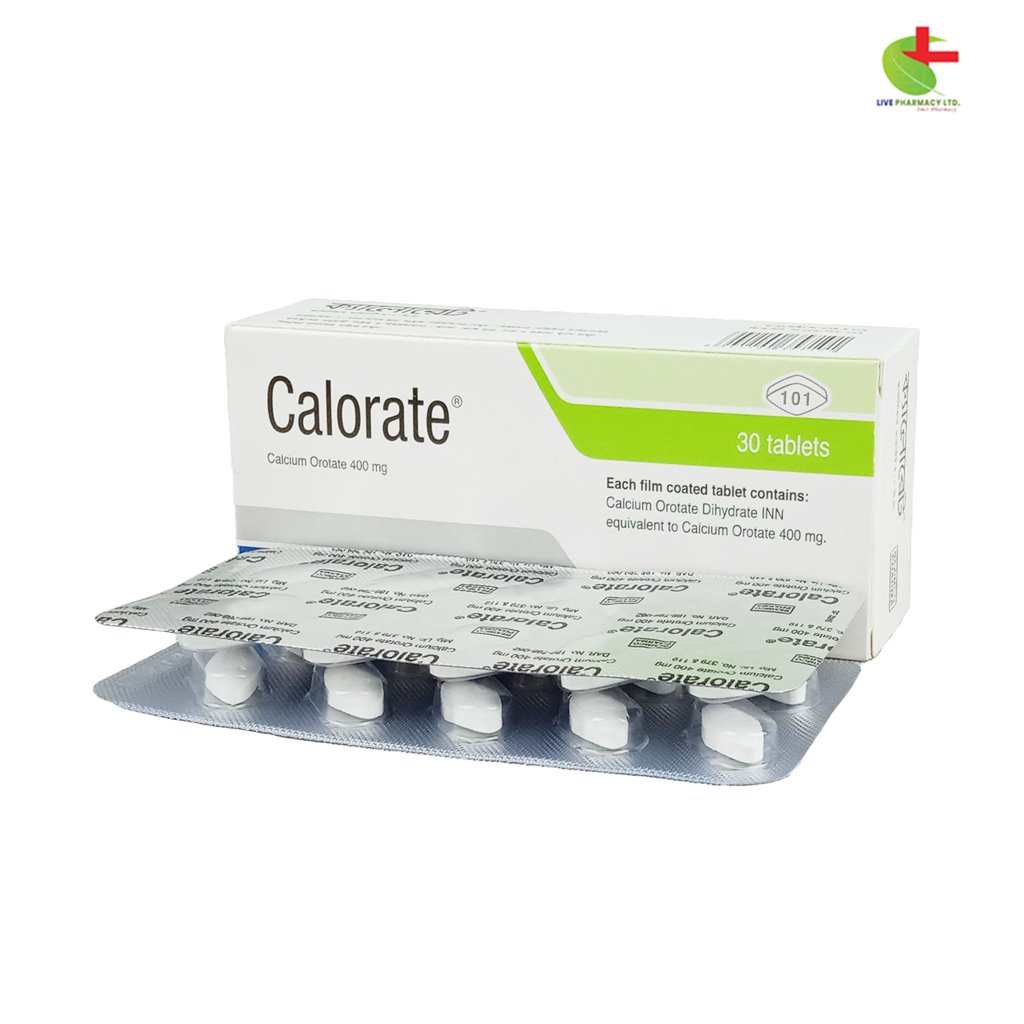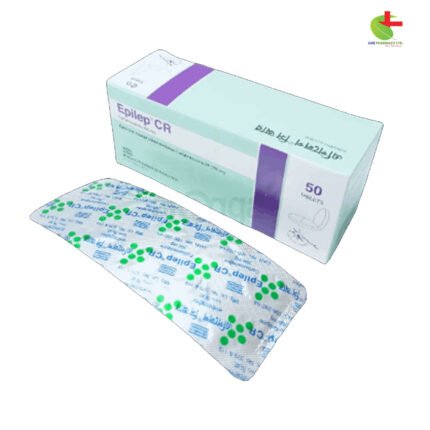Calorate 400
80.00৳ Strip
- Addresses low blood calcium levels and conditions such as osteoporosis and rickets.
- Aids in weight control, reduces mood swings, and supports heart health.
- Unique formulation improves calcium absorption and overall well-being.
 Brand
Brand
|
Beximco Pharmaceuticals Ltd |
|---|---|
 Generics
Generics
|
Calcium Orotate |
 Type
Type
|
Tablet |
Indications
Calorate is designed to address low blood calcium levels in individuals who may not get adequate calcium from their diet. This supplement helps to alleviate calcium deficiencies associated with conditions such as osteoporosis, osteomalacia, rickets, latent tetany, postmenopausal osteoporosis, senile osteoporosis, juvenile osteoporosis, drug-induced osteoporosis (e.g., due to phenytoin, phenobarbital, or prednisone), pregnancy, lactation, premenstrual syndrome (PMS), hypoparathyroidism, and recovery from hip joint plastic surgery.
Additionally, Calorate plays a role in managing several inflammatory diseases, including arthritis, psoriasis, lupus, spondylitis, cardiovascular issues, encephalitis, retinitis, phlebitis, colitis, and multiple sclerosis. It also aids in weight control by reducing chronic overeating habits, mitigates mood swings, enhances cognitive function, and supports heart health by improving cardiac muscle efficiency. Recent research suggests that Calorate may lower the risk of colon cancer.
Pharmacology
Calorate contains Calcium Orotate, a calcium supplement bound with orotic acid, a functional amino acid chelating ligand. Orotic acid facilitates the transport of calcium across cell membranes, enhancing calcium absorption, especially in bone tissue. Additionally, Calcium Orotate supports cartilage health and is involved in the synthesis of DNA and RNA. Notably, Calcium Orotate is highly effective due to its ability to penetrate complex cell membranes and be metabolized in cartilage.
Dosage & Administration
- Calcium Orotate 400 mg: Typically, 2-3 tablets per day with meals or as directed by a healthcare provider.
- Calcium Orotate 740 mg: Generally, 1-2 tablets per day with meals or as advised by a physician.
Follow your physician’s guidance regarding dosage.
Interactions
Calorate may reduce the absorption of certain medications, including bisphosphonates (e.g., alendronate), quinolone antibiotics (e.g., ciprofloxacin, levofloxacin), tetracycline antibiotics (e.g., doxycycline, minocycline), levothyroxine, phenytoin (an anticonvulsant), and tiludronate disodium (used for Paget’s disease). It can also interact with thiazide diuretics, potentially increasing the risk of hypercalcemia and hypercalciuria. Antacids containing aluminum or magnesium, mineral oil, stimulant laxatives, glucocorticoids (e.g., prednisone), oral contraceptives, estrogen compounds, and anti-inflammatories (e.g., NSAIDs, aspirin, ibuprofen) may also affect calcium absorption or levels.
Contraindications
Calcium Orotate should not be used in individuals with conditions such as bowel irregularities, kidney stones, kidney disease, hyperparathyroidism, high calcium levels in urine or blood, or severe dehydration.
Side Effects
Common side effects may include abdominal bloating and swelling. Other possible effects are loss of appetite, upset stomach, constipation, nausea, vomiting, unusual weight loss, increased thirst and urination, weakness, tiredness, and rare formation of kidney stones.
Pregnancy & Lactation
Pregnant and breastfeeding women have increased calcium needs. Supplementing with Calcium Orotate can help manage pregnancy-related high blood pressure, benefiting both mother and baby.
Precautions & Warnings
Consult your healthcare provider before using Calorate if you have allergies to the supplement or if you suffer from conditions such as kidney disease, kidney stones, achlorhydria (low stomach acid), heart disease, pancreatic disease, sarcoidosis, or malabsorption syndrome.
Therapeutic Class
Mineral supplements for bone formation and specific mineral preparations.
Storage Conditions
Store in a cool, dry place away from light and keep out of reach of children.













Reviews
There are no reviews yet.